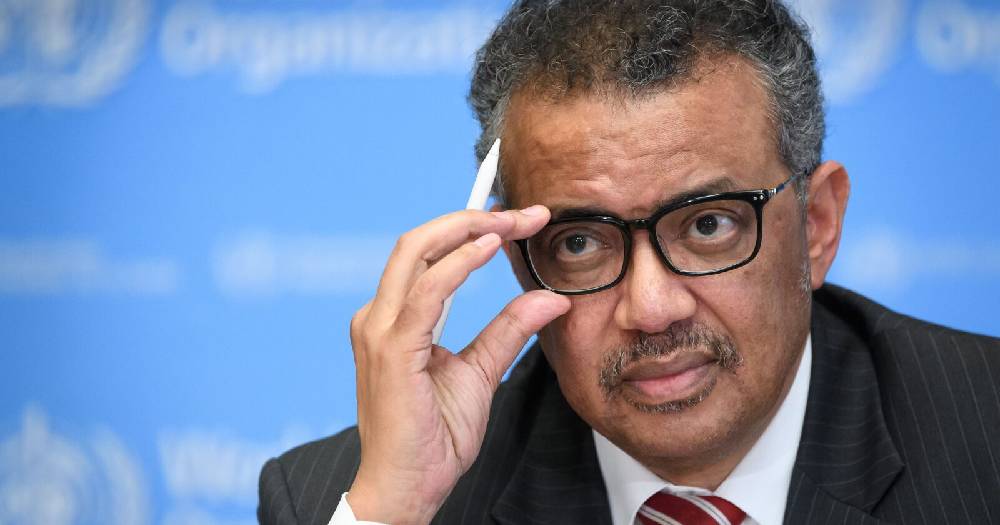Follow us on Telegram for the latest updates: https://t.me/mothershipsg
The Director-General of the World Health Organisation (WHO) -- Tedros Adhanom Ghebreyesus -- has expressed his concern over blanket measures against the Omicron Covid-19 variant that may be unnecessary and unfair to African countries, Reuters reported.
While he said he understood the concern of countries that wish to protect their citizens, he added that he was "equally concerned" about the "blunt, blanket measures" that were being introduced by some countries.
Without naming the countries, the 56-year-old added that measures that are not evidence-based or effective will only "worsen inequities".
Several countries, including the U.S., Canada, Japan, and Israel have imposed travel restrictions on seven south African countries, Anadolu Agency reported.
Singapore has also deferred the launch of Vaccinated Travel Lanes (VTLs) with Qatar, Saudi Arabia, and the United Arab Emirates due to their proximity to the affected countries.
WHO previously said that the Omicron variant was first reported to them from South Africa on Nov. 24.
"More questions than answers" about Omicron
According to a transcript published on WHO's website, Tedros made the remarks when speaking at an information session for the organisation's member states.
He also admitted that there are "more questions than answers" about the Omicron variant's severity and the effectiveness of vaccines against it.
"Once again, I thank Botswana and South Africa for detecting, sequencing and reporting this variant so rapidly", he added.
WHO also said on Nov. 30 that blanket travel bans will not prevent the international spread of the Omicron variant, and such measures will "place a heavy burden on lives and livelihoods".
"Very high" global risk
On Nov. 29, a day prior to Tedros's comment, the WHO warned that the Omicron variant is likely to spread internationally.
The organisation also said that it poses a "very high" global risk, and could cause "severe consequences" in some areas due to the potential surge of infections.
Although no Omicron variant-related death has been reported, member states were urged to accelerate vaccination of high priority groups.
Tedros: African countries should be thanked
Speaking at the Special Session of the World Health Assembly (WHA) on Nov. 29, WHO's chief said the emergence of the Omicron variant "underlines just how perilous and precarious our situation is".
Tedros stressed the need for a new accord on pandemics, claiming that the current system "disincentives" countries from alerting others to threats.
He further opined that South Africa and Botswana should be thanked for their efforts in detecting, sequencing, and reporting the variant instead of being "penalised".
African nations hit back at travel bans
During a WHO meeting of health ministers on Nov. 30, the Namibian delegation said the travel bans imposed on southern Africa was a "knee jerk reaction grounded in politics, not in science or guidance from the WHO Constitution", according to Reuters.
The delegation also expressed disappointment towards countries that have imposed travel bans on the region, while Tanzania has called for the travel bans to be lifted immediately.
Cyril Ramaphosa, the president of South Africa, called on countries that have imposed travel restrictions on the region to "immediately and urgently reverse their decisions", AFP reported.
Meanwhile, Malawian President Lazarus Chakwera took to Facebook on Nov. 28 to say the unilateral travel bans were "uncalled for".
"Covid measures must be based on science, not Afrophobia", he added.
Although Canada expressed gratitude over the sharing of information on Nov. 30, it also expanded its travel ban to three more countries in Africa.
According to the Toronto Star, the country is banning foreign travellers from Egypt, Malawi, and Nigeria, on top of the seven countries that were already on the list.
Previously on Nov. 26, Canada announced the travel ban on African countries such as South Africa, Eswatini, Lesotho, Botswana, Zimbabwe, Mozambique, and Namibia.
Related Stories:
Follow and listen to our podcast here
Top image via Fabrice Coffrini/AFP/Getty Images
If you like what you read, follow us on Facebook, Instagram, Twitter and Telegram to get the latest updates.
